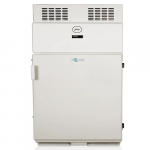If you’re into trading or investing, you’ve probably come across derivatives. They can be a great way to manage risk, hedge your bets, or even make quick profits. But not all derivatives work the same way.
In India, two major derivatives stand out—commodity and equity derivatives. While both let you trade based on price movements, they’re used for different reasons and involve different risks.
Some traders stick to commodities like gold or crude oil, while others prefer stocks and indices. Which one makes sense for you?
1. What Are Commodity and Equity Derivatives?
Both commodity and equity derivatives are financial instruments that derive value from an underlying asset. However, their fundamental structure and market behaviour vary significantly.
Commodity Derivatives
Commodity derivatives are contracts that derive their value from physical goods such as gold, silver, crude oil, wheat, and other raw materials.
These instruments are primarily used for hedging against price volatility and are commonly traded on exchanges like MCX (Multi Commodity Exchange) and NCDEX (National Commodity & Derivatives Exchange).
Common commodity derivatives include:
- Futures contracts: Agreements to buy/sell a commodity at a predetermined price on a future date.
- Options contracts: The right (but not the obligation) to buy/sell a commodity at a fixed price before expiry.
Equity Derivatives
Equity derivatives, on the other hand, are financial contracts based on stocks or indices. Traders use these instruments to speculate on price movements or hedge their portfolios against market downturns.
Common types of equity derivatives:
- Stock futures: Contracts that derive their value from a specific stock.
- Stock options: The right to buy/sell shares at a set price before expiration.
- Index derivatives: Contracts based on stock indices like NIFTY 50 or Sensex.
2. Market Participants and Their Objectives
Both commodity and equity derivatives attract different sets of investors and traders.
Commodity Market Participants
- Producers & Farmers: Use derivatives to lock in prices and safeguard against losses due to price fluctuations.
- Industries & Manufacturers: Hedge against rising raw material costs.
- Speculators & Traders: Trade based on anticipated price movements to earn profits.
Equity Market Participants
- Retail & Institutional Investors: Use derivatives to diversify portfolios and manage risks.
- Traders & Speculators: Take positions based on market trends to generate short-term profits.
- Hedgers: Large investors use derivatives to protect stock holdings from adverse price movements.
The core difference here is that while commodity derivatives often involve physical delivery, equity derivatives are purely financial instruments without any actual stock exchange at expiry in most cases.
3. Volatility and Risk Factors
Risk levels in commodity and equity derivatives differ due to the nature of their underlying assets.
Commodity Derivatives Risks
- Price Fluctuations: Influenced by factors like weather, geopolitical tensions, and global supply-demand imbalances.
- Storage & Delivery Issues: Some contracts require physical delivery, adding logistical challenges.
- Liquidity Concerns: Certain commodities have lower trading volumes, leading to higher price gaps.
Equity Derivatives Risks
- Stock Market Swings: Driven by company performance, investor sentiment, and economic trends.
- Regulatory Changes: Government policies and SEBI guidelines can impact stock prices.
- Leverage Risks: High exposure can lead to significant losses if the market moves against expectations.
While both categories carry risks, commodity derivatives are often more influenced by external economic conditions, while equity derivatives are tied to market trends and company performance.
4. Trading Exchanges and Regulations
The regulatory environment and trading platforms for these derivatives also vary.
Commodity Derivatives Exchanges
- MCX (Multi Commodity Exchange) – India’s largest commodity exchange.
- NCDEX (National Commodity & Derivatives Exchange) – Focuses on agricultural commodities.
Equity Derivatives Exchanges
- NSE (National Stock Exchange) – Offers futures and options on stocks and indices.
- BSE (Bombay Stock Exchange) – Provides derivatives trading for listed stocks.
Both segments are regulated by SEBI (Securities and Exchange Board of India), ensuring investor protection and market stability.
5. How a Share Price Calculator Helps in Derivative Trading
A share price calculator is a crucial tool for equity derivative traders, helping in decision-making by estimating potential profits and losses based on stock price movements.
Benefits of Using a Share Price Calculator
- Predicts Returns: Helps traders assess how stock price fluctuations impact derivative positions.
- Evaluate Risk: Calculates potential losses, allowing traders to set stop-loss limits.
- Compares Investment Options: Assists in choosing between different stocks for trading.
Using a share price calculator, traders can make informed decisions and better manage their risks in derivative markets.
6. Profitability Potential: Which One Offers Better Returns?
Profitability in commodity and equity derivatives depends on market knowledge, timing, and risk management.
Commodity Derivatives
- Suitable for traders with expertise in commodities and global economic trends.
- Higher price swings mean more profit potential but also increased risk.
- Requires understanding of supply chains and macroeconomic indicators.
Equity Derivatives
- Preferred by stock market participants who analyse company performance and financial trends.
- Easier to predict stock movements compared to commodities.
- Involves lower margin requirements compared to commodities, making it accessible to retail investors.
For investors with limited experience, equity derivatives may be a more familiar and accessible choice.
7. Investment Horizon: Short-Term vs. Long-Term
Commodity and equity derivatives differ in how long investors typically hold positions.
- Commodity derivatives are generally used for short-term trading due to their high volatility. Contracts are often closed within a few weeks or months.
- Equity derivatives can be used for short-term trading and long-term portfolio protection, making them versatile.
Investors should assess their financial goals before selecting which derivative market suits their needs.
8. Who Should Invest in Which?
Investors should choose between commodity derivatives and equity derivatives based on their experience and financial objectives.
- Commodity derivatives are better suited for traders who understand commodity markets and are comfortable handling high price swings.
- Equity derivatives are preferable for stock market investors who want to hedge or speculate on share price movements.
Conclusion
Both commodity derivatives and equity derivatives provide opportunities for traders to benefit from price fluctuations. However, they operate in distinct markets, carry different risks, and require varying levels of expertise.
Investors can build a robust trading strategy that aligns with their financial goals by selecting the right derivative instrument based on risk tolerance and market knowledge.








